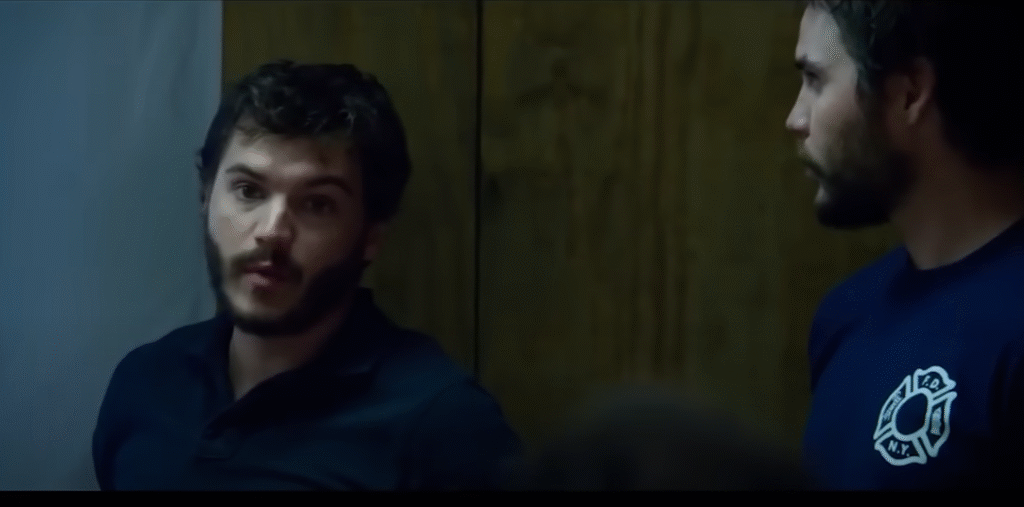In Lone Survivor, Taylor Kitsch’s portrayal of Lieutenant Michael P. Murphy became one of the few instances where memory and film meld together. Actors needed to be immersed, reverent, and steadfastly committed to authenticity in order to portray a real Navy SEAL Medal of Honor recipient. Murphy’s legacy is ingrained in American military history, and Kitsch recognized the significance of playing the role of a man who gave his life to protect his brothers.
This performance stood out not only for the intensity of the battle scenes but also for the preparation that went into them. Kitsch endured unrelenting training intended for survival realism rather than Hollywood glitz. With weighted vests, he ran mountains, went through bloodied and bruised ambush drills, and experienced live-fire simulations that shook his nerves more than most movie sets ever could. Later, he acknowledged that the training went well beyond his comfort zone and shaped a mindset remarkably akin to the grit of the men he was playing.
Kitsch went on a sort of pilgrimage before entering the set, meeting Dan, the father of Michael Murphy. It became clear after that emotional meeting that this was more than just another role. It was a gesture to preserve the dignity of a fallen son for viewers who would only ever see him on screen, to carry on a memory. Kitsch saw the highs and lows of Hollywood stardom and box office failures like John Carter, so the responsibility was not only professional but also very personal.
Bio Data and Career Information
| Name | Taylor Kitsch |
|---|---|
| Date of Birth | April 8, 1981 |
| Age | 44 years |
| Birthplace | Kelowna, British Columbia, Canada |
| Height | 5′11″ (180 cm) |
| Parents | Drew Kitsch, Susan Green |
| Siblings | Brody Kitsch, Daman Kitsch |
| Occupation | Actor, Model |
| Notable Roles | Tim Riggins (Friday Night Lights), Gambit (X-Men Origins: Wolverine), Lt. Michael Murphy (Lone Survivor), Alex Hopper (Battleship), John Carter (John Carter) |
| Recent Projects | The Terminal List, Dark Wolf, American Primeval |
| Reference | Taylor Kitsch – Wikipedia |

Ben Foster as Matthew Axelson, Emile Hirsch as Danny Dietz, and Mark Wahlberg as Marcus Luttrell made up the ensemble cast, and they all gave a raw and unapologetic performance. But Kitsch’s Murphy was unique in that his tale was both heroic and tragically limited. One of the most heartbreaking scenes in the movie is when he decides to risk his life on a mountainside in order to get a radio signal; it’s a scene where bravery and fate meet.
Naturally, parallels to other war epics emerge. Similar emotional resonances can be found in Tom Hanks’ silent resolve in Saving Private Ryan and Bradley Cooper’s painstaking transformation into Chris Kyle in American Sniper. Kitsch’s experience as a Lone Survivor, however, feels remarkably unique. In contrast to fictionalized characters, Murphy’s spirit was captured in photographs, testimonies, and his loved ones’ unwavering grief, rather than in the imagination. Kitsch was all fidelity and no room for creativity.
The fidelity of the production itself was emphasized. In his unwavering quest for realism, director Peter Berg incorporated Navy SEAL veterans into the training process to make sure the actors not only looked the part but also act, react, and think like SEALs. As Kitsch learned that the SEAL creed was about unconditional loyalty, selflessness, and trust, he benefited greatly from this. He also absorbed the ethos of brotherhood.
Beyond movie theaters, Lone Survivor had a cultural impact. It came at a time when audiences were still dealing with the effects of Afghanistan and the sacrifices made by service members were frequently regarded as intangible in casual discussions. Kitsch’s Murphy became a representation of the unsung heroism inherent in service, and the movie gave those sacrifices voices, faces, and stories. His portrayal of a figure who might have remained a name on a plaque was remarkably successful in humanizing him, as evidenced by the response from military families.
Lone Survivor was a pivotal moment for Kitsch. This role gave him credibility again and reminded Hollywood of his dramatic depth after he had experienced setbacks in his career. It reflected Murphy’s own philosophy of perseverance in the face of insurmountable obstacles and was, in many respects, his redemption story. It seemed as though Lone Survivor had permanently reoriented his artistic compass, and this change was reflected in his later work in The Terminal List.
The impact on society was equally significant. Theatres were left feeling shook and reflective by audiences who had not been exposed to military life. The film depicted the terrible costs of war rather than glorifying it. Instead of being a gigantic action figure, Kitsch’s portrayal of Murphy was one of a man who worried, laughed, and ultimately made the decision to sacrifice himself for the benefit of others. Conversations concerning the war itself as well as the practical applications of duty, bravery, and honor were spurred by this framing.
In terms of the development of war movies, Lone Survivor is comparable to Black Hawk Down and The Hurt Locker in that it prioritized realism over spectacle. But it was unique because it was rooted in brotherhood. Murphy’s memory was kept alive in the public consciousness rather than being restricted to military circles thanks in part to Kitsch’s contribution. Because of his performance, civilians were able to emotionally relate to a story that was based in the harshest realities of combat, bridging cultural divides.

